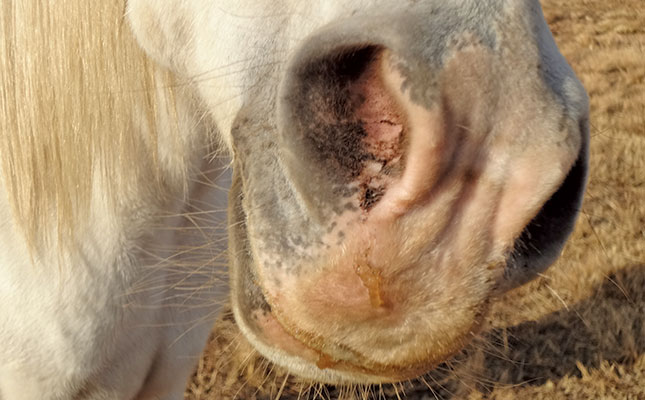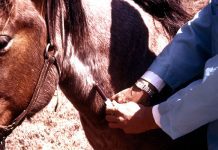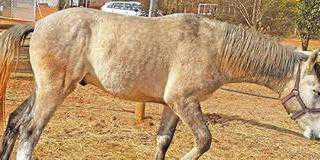
Photo: Courtesy of Kim Dyson
A cough is the body’s natural, reflex reaction to any irritation, inflammation or blockage in the airway – and is often accompanied by an infection such as influenza or a bronchial infection.
Coughing performs an essential function – it helps to keep the bronchial tubes open and clear.
Therefore cough treatment should aim to make the cough more effective rather than suppress it.
Herbs
The herb Coltsfoot (Tussilago farfara) is good for an irritating spasmodic cough. Place one handful of the dry herb in the horse’s food twice a day. Echinacea, meanwhile, will help with infectious coughs and colds.
Thyme is a powerful antiseptic, and will relieve tight, dry coughs associated with respiratory infections.
Homeopathic treatment
- Bryonia – This is good for a spasmodic, dry cough. A horse with this cough tends to be very thirsty and movement often makes the cough worse.
- Drosera – This is effective for a deep, harsh cough.
- Ferrum phosphoricum – At the first signs of a cough, give 10 pills twice a day mixed with a small amount of grated carrot.
- Magnesium phosphate – A wonderful muscle tonic, this helps to control coughing paroxysms.
- Silica – This helps with a chronic cough.
- Essential oils – These are invaluable for keeping the airways open and clear. Take an old feed bag (hessian is best), place a small amount of hay in the bottom, pour a little boiling water over it and add a few drops of the essential oils of eucalyptus, cardamom, jasmine and lavender. Cut two holes in the bag, tie it to the nose band of the head collar and steam your horse.
The importance of rest
The need for rest after an infection can never be overstated. Damage to the heart and the lungs is irreversible, so it’s crucial to allow at least six weeks’ rest after a respiratory infection.
Whatever type of cough or cold you are treating, a warm, comfortable, quiet environment goes a long way towards a speedy recovery. And, if you’re in doubt about your horse’s health, contact your vet as soon as possible.













